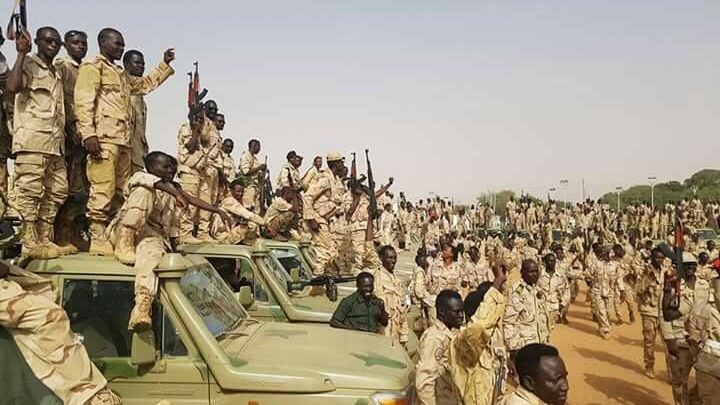By the Numbers: Sudan Exposes Militia Atrocities Before the Human Rights Council

Sudan Events – Agencies
Al Jazeera Net has obtained the latest official report revealing the scale of war violations in Sudan, presented by Fath Al-Tayfour, Attorney General of the Republic of Sudan and Chair of the National Committee for Investigating Violations of National and International Humanitarian Law, at the UN Human Rights Council in Geneva.
The report, submitted last Tuesday during a briefing session of the Fact-Finding Mission on Sudan at the 59th session of the Human Rights Council, revealed widespread killing, injury, rape, disappearance, and forced detention of hundreds of thousands of Sudanese since the outbreak of war on April 15, 2023.
It stated that “the rebel Rapid Support Forces (RSF) militia committed acts of genocide and extrajudicial killings in Al-Jazira State, and in the areas of El Geneina, Ardamata, Al-Jumouiya, Al-Salha, El Obeid, An-Nuhud, Al-Khoy, and in Zamzam and Abu Shouk camps.”
Documented Violations
According to the report, the total number of victims from these violations reached 28,613 killed and 43,575 injured.
It added that the “rebel militia” used widespread sexual violence—including individual and gang rape and sexual slavery—as a weapon and tool of humiliation, aimed at displacing communities and altering demographics.
The report noted that these violations were also documented by United Nations reports. The National Committee registered 98 rape-related cases, while the Unit for Combating Violence Against Women documented 1,392 rape incidents, including cases involving minors. These figures represent less than 2% of estimated actual cases due to social stigma and fear of reporting.
According to the same report, the “rebel militia” also violated children’s rights by forcibly recruiting 9,000 children and sending them to battlefronts. It reportedly employed foreign mercenary gangs from over 12 countries.
Forced disappearances and detentions totaled 14,506 cases, according to investigations conducted by the National Committee. The report also highlighted the execution of prisoners and the discovery of 965 mass graves, believed to contain large numbers of forcibly disappeared persons, detainees, and executed prisoners.
Systematic Destruction
The report further stated that the so-called “rebel militia” systematically targeted and destroyed civilian infrastructure using drones. Targets included displacement shelters, airports, dams, power stations, Port Sudan, fuel depots, hospitals, and prisons.
Previously, the National Committee for Investigating Violations had submitted two reports on its work, affirming the independence of its investigations and its adherence to fair trial standards and professional conduct. The Committee also adopted a field-based approach by conducting site visits and engaging directly with witnesses and victims, without being limited by geographical jurisdiction.
Case Breakdown:
120,594 cases involved crimes of genocide, war crimes, crimes against humanity, and terrorism committed by the “rebel militia.”
257 cases were filed against regular armed forces personnel for isolated, non-systematic incidents.
570 cases were dismissed during preliminary investigations.
3,997 cases reached the national courts, with 1,093 adjudicated.
619 suspects were declared fugitives and called to turn themselves in.
The Committee contacted six countries seeking the extradition of 17 suspects believed to be residing abroad.
Recommendations
The report praised the “integrity, competence, and capacity of Sudan’s national judiciary” in achieving justice and preventing impunity. It emphasized that “there is no room for chaos or impunity,” and that “Sudan is moving towards stability with the retreat and defeat of the rebellion and the return of citizens.”
The report concluded with several key recommendations:
Condemn the actions of the “rebel militia” (RSF).
Designate it as a “terrorist group.”
Ban its operations and movements.
Classify its leaders as “terrorist individuals.”
It also recommended ending the mandate of the UN Fact-Finding Mission, supporting the National Committee to complete its work, excluding any alternative external mechanisms, and enhancing cooperation between the Council and the National Committee. Additionally, it urged regional countries to assist the Committee in locating victims and witnesses and recovering stolen assets.



